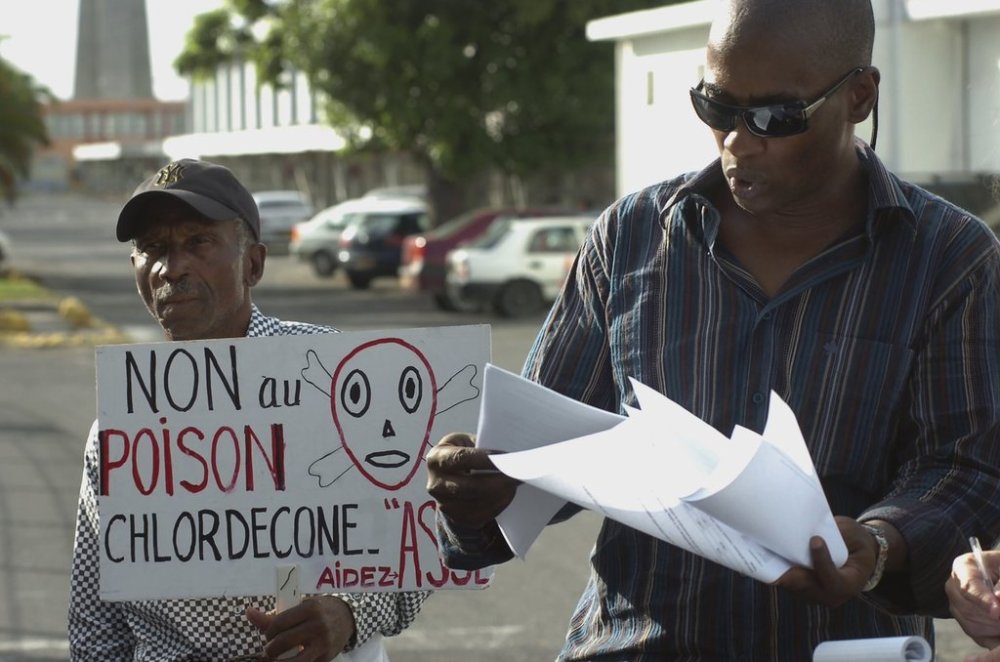An appeal court upholds ruling finding the French state guilty in Caribbean pesticide case
Advertisement
Read this article for free:
or
Already have an account? Log in here »
To continue reading, please subscribe:
Monthly Digital Subscription
$0 for the first 4 weeks*
- Enjoy unlimited reading on winnipegfreepress.com
- Read the E-Edition, our digital replica newspaper
- Access News Break, our award-winning app
- Play interactive puzzles
*No charge for 4 weeks then price increases to the regular rate of $19.00 plus GST every four weeks. Offer available to new and qualified returning subscribers only. Cancel any time.
Monthly Digital Subscription
$4.75/week*
- Enjoy unlimited reading on winnipegfreepress.com
- Read the E-Edition, our digital replica newspaper
- Access News Break, our award-winning app
- Play interactive puzzles
*Billed as $19 plus GST every four weeks. Cancel any time.
To continue reading, please subscribe:
Add Free Press access to your Brandon Sun subscription for only an additional
$1 for the first 4 weeks*
*Your next subscription payment will increase by $1.00 and you will be charged $16.99 plus GST for four weeks. After four weeks, your payment will increase to $23.99 plus GST every four weeks.
Read unlimited articles for free today:
or
Already have an account? Log in here »
Hey there, time traveller!
This article was published 11/03/2025 (244 days ago), so information in it may no longer be current.
PARIS (AP) — An appeals court in Paris upheld Tuesday a ruling that found the French government guilty of wrongful negligence for using a banned pesticide in the French Caribbean islands of Guadeloupe and Martinique.
About 1,300 people filed the lawsuit in 2020, seeking, among other things, 15,000 euros ($15,900) for each person who lived for at least 12 consecutive months in the two islands since 1972, claiming the exposure to Chlordecone, also known as Kepone. The pesticide was prohibited in the U.S. in 1976 and is blamed for slurred speech and other neurological problems.
The Administrative Appeal Court of Paris ruled that the French government “committed wrongdoings in authorizing the sale of chlordecone-based insecticides, allowing their prolonged use, and failing to assess the pollution caused by this use, put an end to it, measure its consequences and inform the affected population,” according to a statement.

It said that the state must provide financial reparation for the anxiety suffered by “people durably exposed to the pollution,” on condition they can prove the damage. On Tuesday, the court ordered compensation for 10 people who met the legal criteria for “damage of anxiety” after bringing “sufficient evidence, such as blood tests, corroborated where necessary by soil analyses, to establish actual exposure to pollution.”
However, the court pointed out that the “mere mention of exposure to chlordecone,” when not justified, can not lead to compensation.
In a 2022 ruling, a Paris court had also found the French government guilty yet noted that the defendants hadn’t mentioned any personal or detailed elements “justifying the damage of anxiety they claim.”
Some French officials had previously expressed worry the pesticide could be linked to high rates of prostate cancer on the two islands, and some studies have suggested it may be linked to premature births. The Stockholm Convention, a global treaty to protect human health and the environment from the effects of persistent organic pollutants, has banned its production and commercialization since 2004.
Chlordecone was legally marketed in France from 1981 to 1990. It was used for three additional years in Guadeloupe and Martinique to fight the banana weevil, an insect that infects banana growing areas, under an exemption granted by the French government.
France’s government has estimated that more than 90% of adults in both Caribbean territories were exposed to Chlordecone. The islands have a combined population of some 750,000 people.

